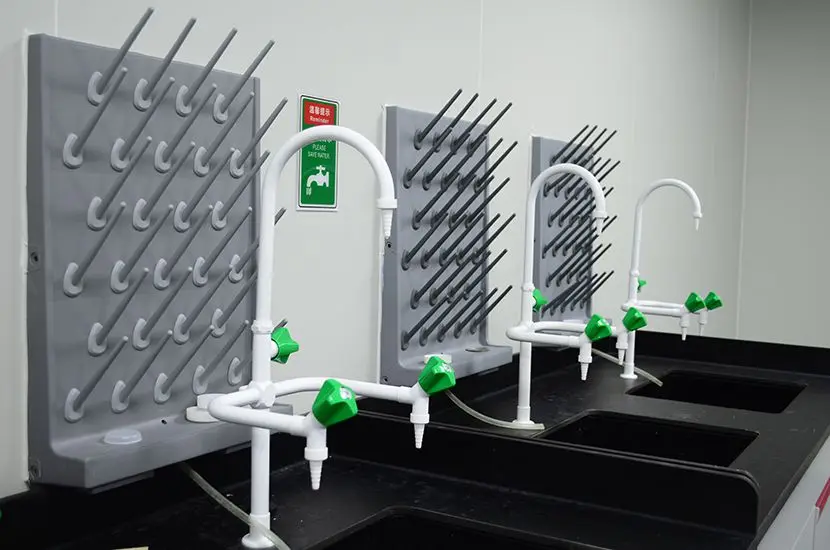
What is the EN 50155 Certification Standard?
en 50155 is an international standard for electronic equipment used in railway applications. It covers requirements for the reliability, safety, and electromagnetic compatibility of rail transit equipment operating in extreme environments. This standard applies to locomotive control systems, onboard electronic devices, monitoring systems, and auxiliary equipment, ensuring their stable operation in complex railway conditions.

Test Items and Requirements
Environmental Adaptability Tests
- Temperature: Equipment must operate normally within the range of -40℃ to +70℃, verifying stability at high temperatures and startup capability at low temperatures.
- Humidity: Must withstand relative humidity from 5% to 95%, assessing impacts of condensation, corrosion, and insULation performance.
- Dry Heat/Wet Heat Cycling: Simulates resistance to alternating dry high temperature and high humidity environments.
Mechanical Reliability Tests
- Vibration: Simulates continuous vibration during locomotive operation, covering frequency ranges typical of railway conditions.
- Shock: Evaluates the device's ability to withstand instantaneous mechanical shocks such as track bumps.
Electromagnetic Compatibility (EMC) Tests
- References EN 50121-3-2 standard.
Electrical Performance and Safety Tests
- Power Supply Fluctuations: Supports power supply voltage fluctuations from 0.7 to 1.25 times the rated value and withstands short interruptions.
- Insulation and Withstand Voltage: Tests insulation resistance and dielectric strength to prevent electric shock risks.
- Water and Dust Protection: Passes IP rating tests to ensure protection under harsh weather conditions.
Long-Term Reliability Verification
- Assessed via accelerated life testing (e.g., MTBF tests) to evaluate stability throughout the device lifecycle.
Scope of Application
EN 50155 mainly applies to the following railway equipment:
- Locomotive power and control systems
- Onboard communication and signal processing equipment
- Auxiliary facilities (e.g., air conditioning, lighting)
- Monitoring and diagnostic systems
EN 50155 Certification Process
The EN 50155 certification process includes standard interpretation, preparation of materials, and the following steps:
1. Standard Interpretation and Requirements Confirmation
- Standard Analysis: Clarify core EN 50155 requirements regarding environmental adaptability (e.g., temperature range -40℃ to +70℃), mechanical reliability (vibration and shock tests), electromagnetic compatibility (EMC), and electrical safety (insulation withstand voltage, power fluctuations).
- Product Classification: Confirm equipment type (e.g., onboard control, communication devices) and applicable test levels.
2. Material Preparation and Documentation
- Technical Documents: Include product design drawings, functional descriptions, technical specifications, and quality control process documentation.
- Pre-Test Reports: Provide internal test data for environmental, EMC, or electrical performance tests if available.
- Declaration of Conformity: Declare product compliance with EU directives and relevant railway industry regulations.
Key Notes
- Duration and Cost: The full process takes 2-3 weeks; costs vary depending on test complexity. It is recommended to clarify the test scope in advance.
- EN 50155 Certification: The certificate remains valid as long as the standard is not updated.
Email:hello@jjrlab.com
Write your message here and send it to us
 2026 EU SVHC Candidate List (253 Substances)
2026 EU SVHC Candidate List (253 Substances)
 LFGB Certification Cost and Timeline Guide
LFGB Certification Cost and Timeline Guide
 Bluetooth FCC Test Report
Bluetooth FCC Test Report
 Is FCC Testing Required?
Is FCC Testing Required?
 Where to Find FCC Test Reports
Where to Find FCC Test Reports
 LFGB Compliance Testing for Plastic Food Contact M
LFGB Compliance Testing for Plastic Food Contact M
 How to get LFGB Compliance Report for Food Grade P
How to get LFGB Compliance Report for Food Grade P
 LFGB Certification Process for Kitchenware Product
LFGB Certification Process for Kitchenware Product
Leave us a message
24-hour online customer service at any time to respond, so that you worry!




